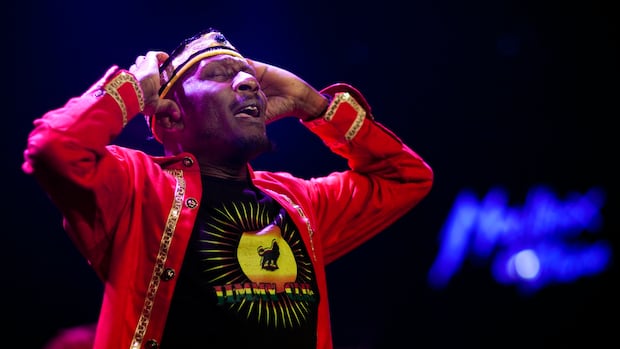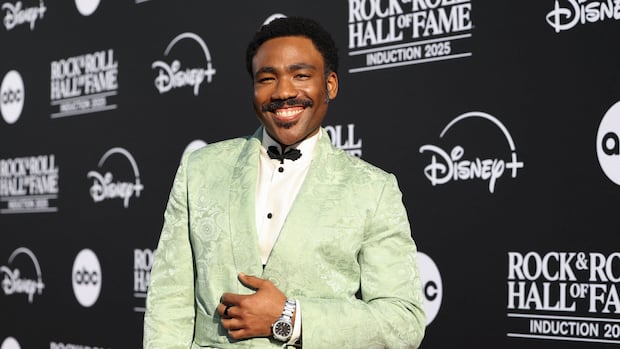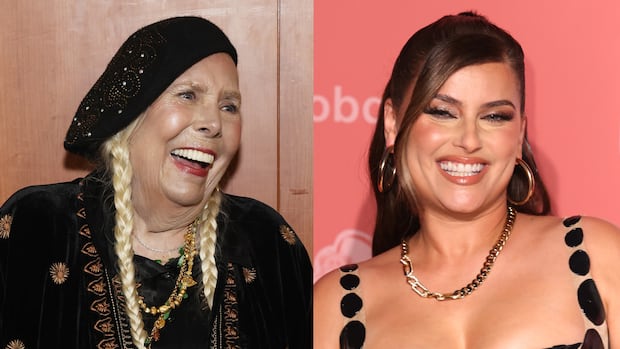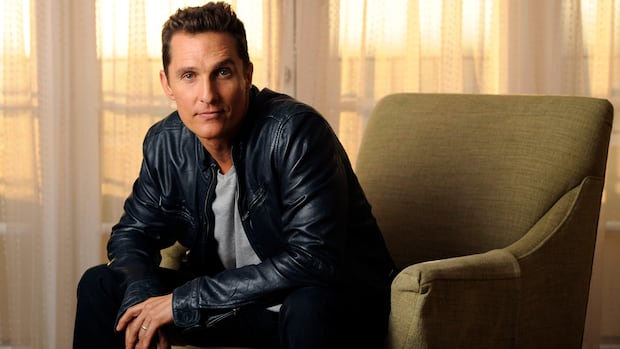Jimmy Cliff, the singer-songwriter who was a presence at the birth of modern Jamaican music and helped spread the influence of reggae around the world through his albums and starring role in the landmark film The Harder They Come, has died. He was 81.
"It's with profound sadness that I share that my husband, Jimmy Cliff, has crossed over due to a seizure followed by pneumonia," his wife, Latifa, said in a Facebook post from Cliff's official account.
"I am thankful for his family, friends, fellow artists and co-workers who have shared his journey with him. To all his fans around the world, please know that your support was his strength throughout his whole career," she added.
Cliff was arguably the most important artist in the genre's history. An oft-told story involves Cliff accompanying another teen who would become reggae's biggest seller and most iconic figure, Bob Marley, to an audition in the early 1960s.
Respect for Cliff's talents transcended the genre. Harry Nilsson, Little Milton and Joe Cocker were among the first artists to cover the gospel-influenced hymn Many Rivers to Cross, a signature song from the The Harder They Come soundtrack, and at the height of his popularity, Bruce Springsteen contributed a live performance cover of Cliff's Trapped for the We Are the World soundtrack album.
Cliff would score a hit himself when Reggae Night charted in several countries in 1983, and his cover of Johnny Nash's I Can See Clearly Now, from the Cool Runnings movie soundtrack, was a top 20 Billboard hit in 1993.
 Jimmy Cliff, left, performs with Wyclef Jean at the Rock and Roll Hall of Fame induction ceremony at the Waldorf Astoria Hotel, in New York, on March 15, 2010. (Lucas Jackson/Reuters)
Jimmy Cliff, left, performs with Wyclef Jean at the Rock and Roll Hall of Fame induction ceremony at the Waldorf Astoria Hotel, in New York, on March 15, 2010. (Lucas Jackson/Reuters)Cliff's accolades include receiving the Jamaican Order of Merit in 2003, and seven years later, he was inducted into the Rock and Roll Hall of Fame.
"When we see Jimmy Cliff, we saw ourselves," Haitian-born Wyclef Jean, of the Fugees, said in an induction speech for Cliff at the 2010 Hall of Fame ceremony.
'Jamaica has lost one of its greatest sons'Born James Chambers on July 30, 1944, in St. James in northwestern Jamaica, Cliff sang in church as a boy and began entering talent shows while barely a teen after moving to Kingston.
His early songs Miss Jamaica, Dearest Beverley and King of Kings resonated on the island and featured the ska rhythms of the time, and he was among several artists Jamaica sent to New York City to perform at the country's exhibition for the 1964 World's Fair.
The New York performances came at a time when knowledge of Jamaican music was just forming outside the island, with the pop-reggae cover of My Boy Lollipop by Millie Small reaching the top 5 on British and North American charts.
"I have lost a friend and Jamaica has lost one of its greatest sons," Olivia Grange, Jamaica's culture minister, posted on X. "Rest in eternal peace, Jimmy. Your light, your music, and your spirit will live on forever."
Prime Minister Andrew Holness on Monday hailed Cliff as "a true cultural giant."
Cliff's footprint would extend beyond Jamaica when he signed in the late 1960s to Island Records, formed by London-born Jamaica resident Chris Blackwell. His early releases for the label would reach European and American shores, with durable standards Wonderful World, Beautiful People, Hard Road to Travel and Vietnam reflecting the rock-steady sounds popular at the time.
Soon, artists like Paul Simon were travelling to Jamaica to record; Cliff and Simon would duet on Vietnam decades later at a Simon concert performance.
Iconic film, soundtrackNext, Cliff received an overture from director Perry Henzell to appear in what would become a stop-and-start production due to financing issues. The Harder They Come, released in 1972, tells the tale of Ivanhoe Martin, who leaves an impoverished rural area of Jamaica for the capital of Kingston, turning to crime when his career stalls.
"Ivanhoe was a real-life character for Jamaicans," Cliff told Variety in 2022, upon the film’s 50th anniversary. "When I was a little boy, I used to hear about him as being a bad man. A real bad man. No one in Jamaica, at that time, had guns. But he had guns and shot a policeman, so he was someone to be feared."
LISTEN | Cliff spoke to CBC for his 2021 release, Human Touch:31:42Episode 5: Jimmy Cliff
Reggae music wouldn’t be what it is today if it weren’t for Jimmy Cliff. He helped popularize the genre globally, particularly with his work starring in and providing music for the groundbreaking Jamaican film The Harder They Come. The Grammy-winning reggae legend joined Tom Power to talk about his latest single, Human Touch, and his incredible lifelong journey in music.The movie would become a cult classic, one of the first Jamaican exports onscreen to the rest of the world, and it played at midnight showings in college towns across North America for several years. Decades later, the film would inspire stage productions that ran in London, Toronto and New York City, and the movie has been a part of the Criterion Collection.
"[Henzel] saw an album jacket of mine and there were two photographs," Cliff told CBC's Q in a 2021 interview. "He said on one, I looked a winner and on another side, I looked like a rebel."
The film's soundtrack — predating the first widely available Marley release worldwide — featured Cliff songs that included the defiant title track, Sitting in Limbo, and You Can Get It If You Really Want It, as well as songs by other reggae artists: Toots & the Maytals, the Slickers and Desmond Dekker.
Cliff would return to the screen in a notable role just once more, with a far more genial character, in the 1986 comedy romp Club Paradise, starring Robin Williams and Canadian SCTV veterans Eugene Levy and Rick Moranis. The accompanying soundtrack featured the high-energy Seven-Day Weekend, a Cliff and Elvis Costello duet.
A restless spirit, Cliff recorded an album in the early 1970s with musicians known for backing soul music's greats at the Muscle Shoals studio in Alabama, and while roots-reggae, and then dancehall, dominated Jamaican airwaves, Cliff's 1980s music was more likely to take on a pop and R&B sheen, with collaborators including Kool & the Gang and LaToya Jackson.
Cliff, who had a Christian upbringing, converted to Islam for several years beginning in the late 1970s and spent considerable time in Europe and Africa, in addition to Jamaica.
WATCH | The title track from landmark 1972 film:
Cliff was one of many featured vocalists on Sun City, the 1985 song organized by Little Steven under the banner of Artists Against Apartheid to bring light to South Africa's two-tiered society, and he toured with the World of Music, Arts and Dance festival and contributed to other charitable music efforts.
Cliff continued releasing albums regularly through the 1990s and beyond. Humanitarian, from 1999, was a return to his roots, featuring contributions from a host of high-profile reggae artists including Marcia Griffiths, Rita Marley, Aston Barrett, Sly Dunbar and Robbie Shakespeare.
Black Magic, five years later, saw duets with Annie Lennox, Sting and, in one of the last songs he recorded, the Clash's Joe Strummer on Over the Border.
Cliff gave a nod to artists he inspired on 2012's Rebirth, co-writing five songs with producer Tim Armstrong, the singer-songwriter from Rancid. Cliff covered Rancid's Ruby Soho and Guns of Brixton by the Clash for that album, with its accompanying tour making stops in Toronto and Montreal.











